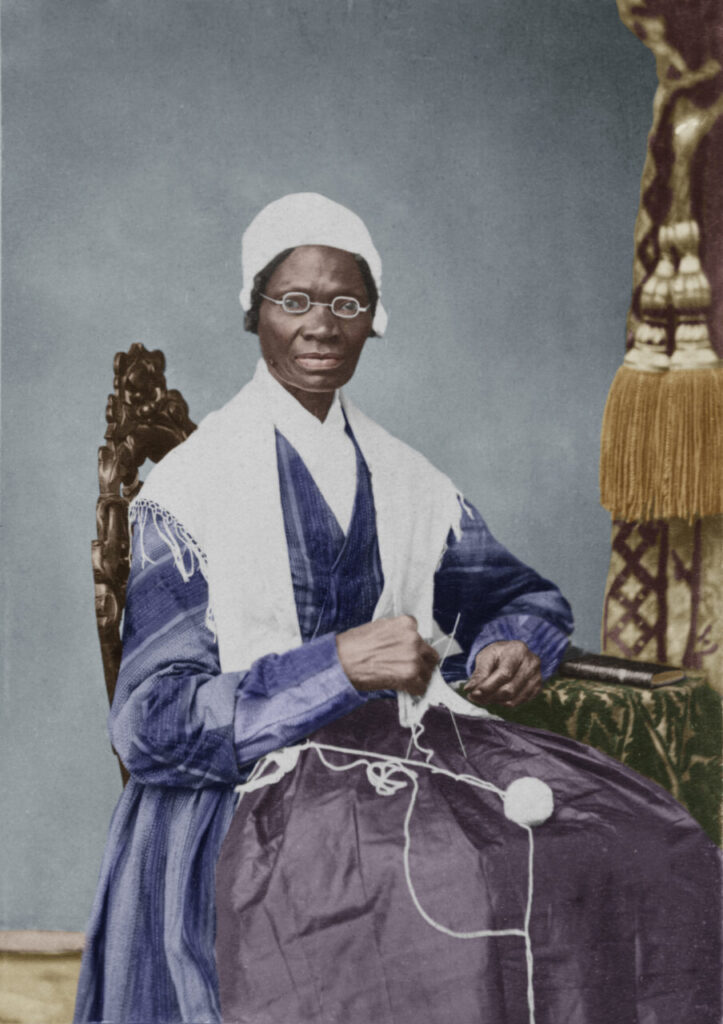SOJOURNER TRUTH

Six feet in height and of unmeasurable resilience, Isabella Baumfree – better known as Sojourner Truth – was a woman of strong faith and of firm conviction. Truth was born into slavery in a hamlet in New York State in 1789. She refused to be a slave and escaped with her baby daughter when she was 29 years old. She took her master to court to recover her enslaved son, and became the first Black woman to win a case against a White male.
Converted and convinced that she was called by God to preach, Sojourner Truth became a travelling evangelist whose practical message called for the freedom of Blacks and equal rights for women. Her exposure to ministry resulted from her work with a number of Christian ministers and evangelists and she changed her name in response to hearing God saying she should travel (Sojourner) and preach the truth (Truth). “The Spirit calls me, and I must go,” she told her friends, and her sojourn continued.
Truth travelled north and would soon meet William Miller, who preached that Jesus would appear in 1944. She began to attend the Millerite Adventist Camp Meeting. She became one of the preachers and singers, and would help to draw huge crowds. Christ did not come as forecasted and this resulted in what was called “The Great Disappointment.”
Sojourner Truth expanded her work as a prolific national speaker and writer in the abolition movement and the woman’s suffrage movement, and developed friendships and alliances with other key leaders like Harriet Beecher Stowe, Frederick Douglass, William Lloyd Garrison and Hannah Tracey Cutler.
She acquired several real estate properties but sold them and eventually moved to Battle Creek, Michigan and rejoined the former members of the Millerite Movement, now organized into what became the Seventh-day Adventist Church, as one of the founding members. Her activism continued and she worked with the abolitionists in Michigan, also helping to recruit Black troops for the Union Army.
This pioneer and trailblazer, who spoke before hundreds of audiences across the United States and had audiences with US presidents, not only helped to transform religion in America, but she impacted the abolition of slavery and boldly confronted the issue of women’s rights. Her extemporaneous speech “Ain’t I a Woman” is still one of America’s greatest oratory works.














